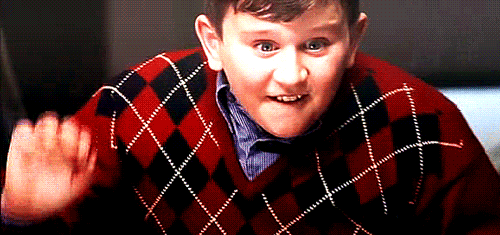“Harry Potter” and the Case Against Binge-Watching
Perhaps what most characterizes growing up as part of the Harry Potter generation is waiting. Three years separated the releases of Books 4 and 5, then another two before Book 6, and two more before the final installment. For many readers, our relationship with the series was defined in large part by eagerly anticipating the next book and wondering what to do in the meantime. These waiting periods contributed to the creation of an active fan community rife with discussion boards, fan fiction, book clubs, parodies, and debates. We couldn’t simply consume the story in silence because we were repeatedly left bursting at the seams with unanswered questions, wondering how loose ends would be tied up, and formulating complex theories about each new puzzle. We were suspicious of rumors, terrified of spoilers, and elated for each midnight release.
In the era of streaming services such as Netflix, Hulu, and Amazon Prime, binge-watching has become the norm. Entire series are at our fingertips with the click of a mouse, and one episode continues straight into the next with autoplay. Viewers can watch years of a show in a matter of weeks. When there are intriguing mysteries, budding romances, cliffhanger endings, and unresolved conflicts, we can immediately quench our desperate desire to know what’s going to happen next.
This instant gratification that is now so common was impossible for rabid Potter fans at the height of the phenomenon. Finishing the newest book meant being left with a laundry list of questions. How will the prophecy play out? Will Ron and Hermione finally admit their feelings? How will Harry find and destroy the remaining Horcruxes? Whose side is Snape really on? With years until the next book, our only course of action was to reread, research, scour the Internet, and talk to everyone we knew. Agonizing as it was, this experience benefited us in the long run. We learned to pay attention to the smallest details, look for deeper significance in interactions between characters, imagine the wildest possibilities, use deductive reasoning, and make predictions based on textual evidence and literary antecedents. We became critical readers by necessity, Hermiones with our noses always in a book. For some of us, myself included, the energy and satisfaction derived from such activities led to further literary studies.
This is not to say that the advent of streaming has led to a reduction in critical engagement. Mainstream media, arts publications, fansites, and blogs churn out hard-hitting, in-depth analyses with stunning speed. There is no dearth of reviews, think pieces, or theories. But this all happens so quickly. With time and revisits—as many of us discovered through our voracious Potter rereading—our attitudes can change, details that initially escaped our notice can influence our interpretations, and new thoughts can occur to us. We realized that the locket at number twelve, Grimmauld Place casually mentioned in Book 5 was the real Horcrux from Book 6 because we had time to reread before Book 7. Even though we can pause between episodes or seasons and participate in discourse, the motivation to do so is much lower when we know that the answers are readily available.
Harry Potter is the reason that I can’t binge-watch. I’ll watch a few episodes in a row, but I can’t get through season after season in only a week or two. I like to give myself time to mull over what I consumed, read spoiler-free analyses of the particular episode I watched, and make predictions about the next episode without immediate confirmation or refutation. As a student of literature, I’m often aware of how Potter trained me to take my time with a text. Harry Potter taught a generation not only how to read but also how to read closely. Many young fans had their first true literary experience with these books and developed a love of reading because of them while also learning to read carefully, engage thoughtfully, and imagine unrestrainedly. So next time you find yourself annoyed that you have to halt your binge-watch to sleep, work, or socialize, consider it a respite to collect your thoughts and revel in the joy of the unknown.

